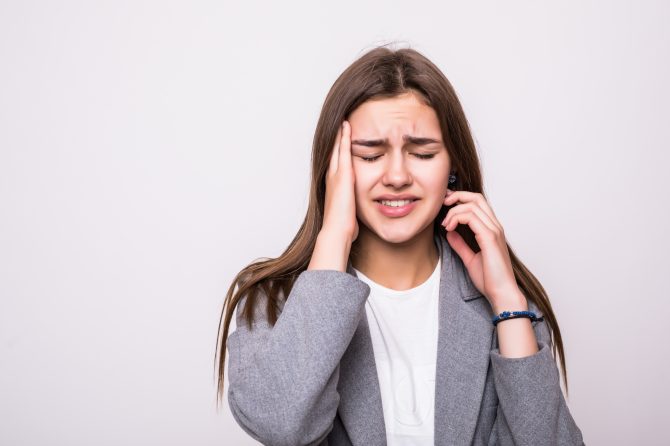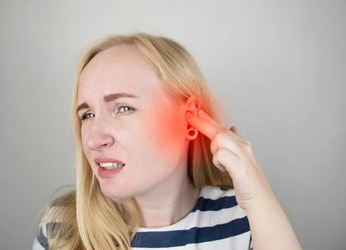
Boil in Ear Canal: Symptoms, Causes, Treatment & How It Can Affect Your Hearing
A boil in the ear canal can be an incredibly painful condition that affects your ear health and, if left untreated, may even interfere with your hearing. Whether you’ve noticed discomfort, swelling, or even mild hearing loss, recognizing the symptoms of a boil in the ear early can help prevent more serious complications. This common yet often underestimated condition is caused by a bacterial infection, and the pain it brings can make everyday activities like talking, chewing, and listening unbearable. Not only does it affect the ear canal, but untreated boils can cause a significant loss of hearing due to blockage or infection spread. In this post, we’ll explore what a boil in the ear canal is, the symptoms to look out for, potential causes, and available treatments to help restore your ear health.
What Is a Boil in the Ear Canal?
A boil in the ear canal (also known as a furuncle) is a localized, painful swelling caused by a bacterial infection. This infection typically occurs in a hair follicle or oil gland inside the ear canal. A boil in the ear can develop when bacteria, usually Staphylococcus aureus, infiltrate the skin due to a scratch, ear cleaning injury, or clogged hair follicle. The result is a swollen, red lump that can sometimes become filled with pus.
Unlike pimples or cysts, boils in the ear tend to be much more painful and can lead to complications if not managed properly. They often occur in the ear canal but can also appear on the outer parts of the ear, such as the earlobe. The boil inside the ear can range in size, from small and barely noticeable to large, affecting hearing and causing significant discomfort.
Key Differences Between Boils, Pimples, and Cysts:
- Boils: Larger, filled with pus, painful, and often deep within the skin layers.
- Pimples: Smaller, less painful, and generally caused by clogged pores or oil glands.
- Cysts: Larger and slower to form, typically filled with a thick substance, and usually not as painful as boils.
If a boil in the ear goes untreated, it can block the ear canal, leading to a build-up of fluid and potentially causing infection to spread deeper into the ear.

boil in ear canal
Common Symptoms
The symptoms of a boil in the ear canal can be quite uncomfortable and disruptive to your daily life. The most common symptoms of an ear boil include:
- Pain and Tenderness: A boil in the ear is often very painful, especially when pressure is applied to the ear or during movement like chewing or talking.
- Swelling and Redness: The affected area around the boil inside the ear may appear inflamed, red, and swollen.
- Pus-filled Center: As the boil in the ear canal matures, it may form a yellow or white pus-filled center that can be seen when the swelling subsides.
- Temporary Hearing Loss: The boil in the ear can block the ear canal, leading to muffled sounds or temporary hearing loss, especially if the boil is large.
- Itching and Discharge: Some individuals may experience itching around the ear, with a discharge of fluid or pus as the boil tries to drain.
If you notice any of these symptoms, it’s crucial to consult a healthcare provider to prevent complications and potential long-term damage to your ear and hearing.
Causes of Ear Boils
A boil in the ear typically results from a bacterial infection, but several factors contribute to the risk of developing this painful condition:
- Bacterial Infection (Staphylococcus aureus): The primary cause of a boil in the ear canal is a bacterial infection, most often caused by Staphylococcus aureus, which is commonly found on the skin.
- Damaged or Irritated Skin: Using cotton swabs, scratching your ear, or inserting objects into the ear canal can break the skin and provide an entry point for bacteria, leading to the development of a boil in the ear.
- Poor Ear Hygiene: Inadequate ear cleaning or improper ear care can promote the growth of bacteria, increasing the risk of developing a boil inside the ear.
- Clogged Hair Follicles: Blocked hair follicles or excessive earwax buildup can also contribute to the development of boils in the ear.
- Underlying Skin Conditions: People with skin conditions like eczema or psoriasis may be more prone to developing boils, including boils in the ear.
How a Boil in the Ear Canal Can Affect Hearing
A boil in the ear canal can interfere with your hearing in several ways, particularly if left untreated. The most common effects include:
- Physical Blockage of the Ear Canal: The swelling from a boil in the ear canal can physically block the ear canal, preventing sound from entering the ear properly and resulting in muffled hearing or temporary hearing loss.
- Pain Causing Avoidance of Hearing Aids or Headphones: Individuals who use hearing aids or headphones may find it difficult to continue using these devices due to the pain and discomfort caused by the boil in the ear.
- Secondary Infections: If the boil inside the ear ruptures or becomes infected, the infection can spread to other parts of the ear, including the middle or inner ear, leading to more serious complications like ear infections or long-term hearing loss.
- Long-Term Untreated Inflammation: Chronic inflammation caused by repeated or untreated boils in the ear canal can lead to more severe complications, affecting the health of the middle ear and potentially causing permanent hearing damage.
Treatment Options
Treating a boil in the ear canal is essential to relieving pain, preventing infection, and protecting your hearing. Depending on the severity of the boil, treatment can be managed at home or may require medical intervention.
Home Remedies:
- Warm Compresses: Applying a warm, moist cloth to the affected ear can help reduce pain and promote drainage of the boil in the ear.
- Avoid Poking or Scratching: Never attempt to pop or squeeze the boil in the ear canal, as this can cause the infection to spread.
- Maintain Hygiene: Clean the outer ear gently with mild soap and water, but avoid inserting objects into the ear canal.
Medical Interventions:
- Antibiotics (Topical or Oral): If the boil is caused by a bacterial infection, a doctor may prescribe topical or oral antibiotics to clear the infection.
- Incision and Drainage: If the boil in the ear becomes large or painful, an ENT specialist may perform an incision to drain the pus and relieve pressure.
- Referral to Audiologist: If the boil in the ear canal is affecting hearing, an audiologist may be necessary to assess any hearing loss or provide hearing aids if required.
Prevention Tips
To prevent the development of a boil in the ear canal, consider following these simple tips:
- Avoid Inserting Objects into the Ear: Never use cotton swabs or other objects to clean the ear canal.
- Practice Gentle Ear Hygiene: Use a soft cloth to clean the outer ear, avoiding harsh cleaning methods that could irritate the ear canal.
- Keep Ears Dry and Clean: Excess moisture can increase the risk of infection. Always dry your ears after swimming or bathing.
- Avoid Sharing Earphones or Hearing Devices: Sharing earphones or hearing aids can spread bacteria. Keep your personal ear devices clean and avoid sharing them with others.
- Use Protective Ear Gear: If you’re in dusty or wet environments, use ear protection to shield your ears from bacteria and other irritants.
When to See a Doctor
It’s important to seek medical attention if you experience any of the following:
- Persistent or Large Boil: If the boil in the ear does not improve with home treatment, seek professional help.
- Fever or Spreading Redness: If you develop a fever or notice redness spreading from the boil in the ear canal, seek immediate medical attention.
- Significant Pain or Hearing Loss: Severe pain or hearing loss should be addressed by a healthcare provider to avoid further complications.
- Recurring Boils or History of Skin Infections: If you frequently develop boils, consult your doctor for underlying causes or preventive measures.
Hearing Loss Due to Ear Boils? Here’s What to Do Next
If you’ve experienced hearing loss due to a boil in the ear canal, it’s essential to take steps to recover your hearing:
- Hearing Tests: After treatment, a hearing test can assess whether any permanent damage has occurred to your hearing.
- Audiologist Consultation: Audiologists can evaluate your hearing and provide solutions such as hearing aids to help you regain normal hearing.
- Follow-Up Care: After the boil heals, regular check-ups will help ensure your ear health is maintained and no further complications arise.
Don’t Let an Ear Boil Compromise Your Hearing — Get Expert Help at The Hearing Centre
If you’re dealing with persistent ear pain, swelling, or hearing loss due to a boil in the ear canal, take action today. At The Hearing Centre, we offer:
- Comprehensive hearing tests
- Skilled audiologist consultations
- State-of-the-art ear assessments and fittings
- Affordable, personalized hearing aid solutions
With over 20 years of experience and 5 convenient locations across Singapore, our team of specialists is here to help you from diagnosis to recovery with professional care and empathy. Book your consultation today and take the first step toward pain-free, clear hearing.
If you want to learn more about dealing with a boil in the ear canal, click here.
Frequently Asked Questions (FAQs)
Q1. What is the best way to treat a boil in the ear canal?
A warm compress, maintaining ear hygiene, and avoiding poking the boil are key home remedies. If the boil doesn’t improve, medical intervention such as antibiotics or drainage may be necessary.
Q2. Can a boil in the ear canal cause permanent hearing loss?
If left untreated, a boil in the ear canal can lead to infection and potentially cause permanent hearing loss due to damage to the ear structures.
Q3. How do I know if I have a boil in the ear canal?
Symptoms include pain, swelling, redness, and a pus-filled bump in the ear canal, along with temporary hearing loss or discomfort.
Q4. Can a boil in the ear canal be prevented?
Yes, by practicing good ear hygiene, avoiding ear trauma (e.g., from cotton swabs), and keeping ears dry and clean.
Q5. Is it safe to pop a boil in the ear canal?
No. Popping or squeezing the boil in the ear can cause the infection to spread and worsen. It’s best to seek medical treatment.
Q6. How long does a boil in the ear canal last?
A boil in the ear canal can last several days to a couple of weeks, depending on its size and how it’s treated.
Q7. Should I see a doctor if I get a boil in the ear?
If the boil in the ear is large, painful, or causes significant hearing loss, it’s important to consult a healthcare provider for proper treatment.
Q8. Can I use over-the-counter ear drops for a boil in the ear canal?
Over-the-counter drops may help with discomfort, but they won’t treat the infection itself. It’s important to seek professional care if symptoms persist


Leave a reply